ALS Diagnosis At Age 30: What It's Like To Be A Young Lou Gehrig's Disease Patient, How The Ice Bucket Challenge Really Did Help
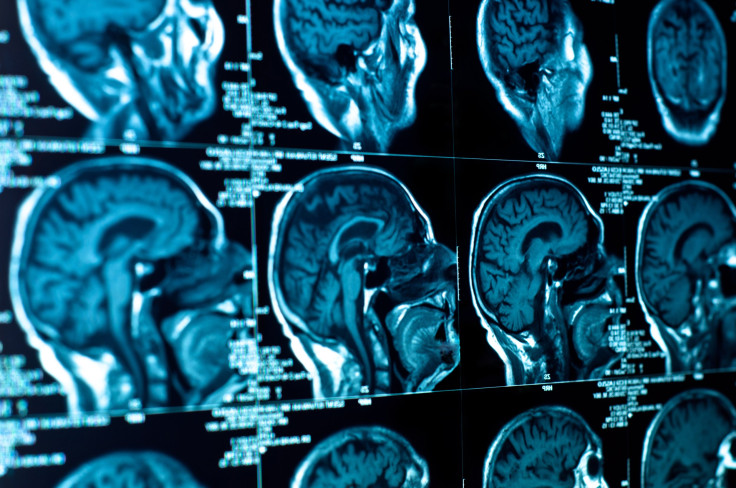
Amyotrophic lateral sclerosis, better known as ALS, is a progressive neurodegenerative disease that affects nerve cells in the brain and the spinal cord. French neurologist Jean-Martin Charcot discovered the disease in 1869, but it didn’t come to the national and international forefront until 1939, when baseball legend Lou Gehrig announced that ALS was forcing him to retire. You may have heard people call ALS Lou Gehrig’s disease.
The ALS Association states that 5,600 new cases of ALS are diagnosed each year, with 30,000 Americans fighting the disease at any given time. Sixty percent of those suffering are men, with a staggering 93 percent being Caucasian. Most people develop ALS between the ages of 40 and 70, with the average age being 55, but there are some cases of people getting ALS in their 20s and 30s. Last summer, the ALS Ice Bucket Challenge brought $115 million in donations to help continue the battle to find a cure for the life-ending disease.
Navy veteran Lt. Cmdr. Matt Bellina was 30 when he got the official diagnosis he had ALS. He spoke with Medical Daily about being young with ALS, how the Ice Bucket Challenge aided in the overall awareness of the disease, and what trials and organizations he’s involved with.
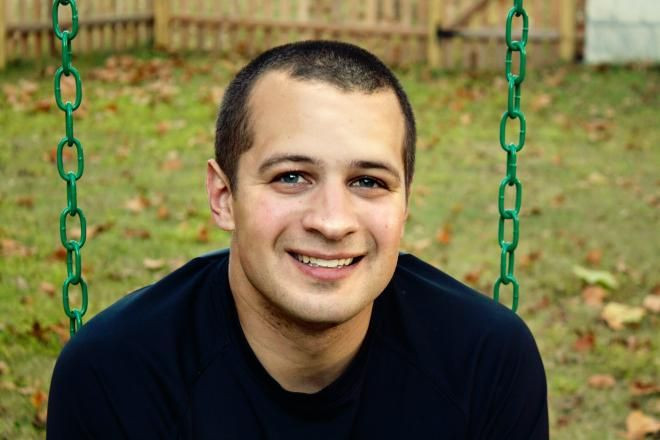
What were the first symptoms of what you’d later find out was ALS?
It started out with twitching in my arms and cramping in my hands, just lack of coordination. I was still feeling pretty good. I was running a lot, I was working out, so I was doing OK. But something was definitely off. I didn’t know what it was.
What was it like finding out you had ALS?
I was 30 when I got [the official diagnosis], but I had a preliminary diagnosis that I didn’t tell anybody about back in November of 2012. So, I’ve known since then. By that point it was almost a relief (Matt’s initial reaction to the official diagnosis in 2014), because it had taken so long. You can’t get any services or any therapy after your diagnosis, so I was just trucking along and still doing PT in the Navy, doing everything the Navy asked me to do, which I really enjoyed. But, a lot of the physical fitness tests and the running were getting harder and harder to keep up. I knew it already, so it was more of a formality and it was kind of almost a load off at that point. It was sad because there was no going back from here. But at the same time it was going to make things a lot easier for me.
How do you think your wife handled it?
Initially, Caitlin (Matt’s wife), like anybody else, was in denial, because I seemed so healthy. For the next year and a half, we kind of went around and around and when it finally came, I mean, she was definitely sad. But I think for both of us, it was kind of one of those things where it’s, “OK, now we know what we’re fighting, let’s go all in on it, let’s face it.” So, it kind of gave us an enemy to go after. She felt the same way: let’s attack this thing, now that we know what it is.
What was your family’s reaction to the news? How has their support helped in the past couple of years?
I can’t speak for them, but I think in some ways it had to have been even harder for them, because they weren’t around. It’s got to be tough. They couldn’t see it, they’re not living with it day to day. It’s more of an abstract monster that they don’t know about, so that makes it hard. For us, we’re used to it, we deal with it every day. But for them, they’re not around, so they’re wondering how I’m doing, getting little by little every time they see me or talk to me. They wonder if I’m getting worse and everything like that, so I think it’s a little hard. I’m not really good at asking for help; I kind of push back a lot on it. But I think, for the most part, just knowing that it’s there and that when I do need it, they’re going to be there is the best thing.
What has the last year and a half been like in terms of tests and your overall feeling?
Well, there’s nothing they can do for you, so you’re just kind of monitoring the progression, and I seem to be a pretty slow progessor, which is good; it’s helpful. For the most part, I’m just more tired and stiffer than I was a year and a half ago. At the time, I had a lot of acceptance and peace and said, “OK, this is what’s going to happen and I got to deal with it.” Now, I’ve actually gone in the other direction and said, “F--- that, let’s beat this thing.” Especially when I watch the kids. I see them go out and play and I’ll think, “I’m not ready to throw in the towel yet.” The Ice Bucket Challenge was a big deal. It really changed a lot of people’s perceptions of what was possible. We’re in it for the long haul here, and I think we’re going to beat this thing.
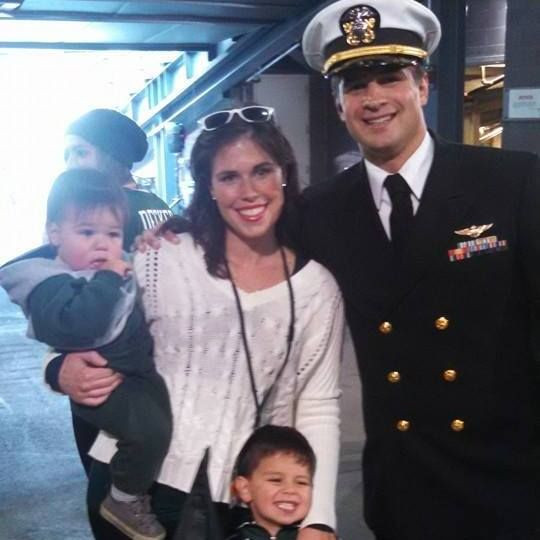
You’ve spent some time trying to get more drugs and research fast tracked through the FDA by going down to Washington, D.C. and campaigning. Can you explain more about what you’ve focused on?
My focus is on getting the Department of Defense and Veterans Affairs (VA) to see the cost benefit of [ALS research]. Veterans are twice as likely to get ALS, and as a result the military is losing out on a lot of human capital and the VA is paying these exorbitant care fees. The average cost of taking care of an ALS patient is about $350,000 per year. And the VA has the burden of doing that because it’s presumed-service connected. So, if you’re diagnosing 1,000 veterans a year and they’re living on average three years post-diagnosis, you’re picking up a new billion dollar obligation every three years. And the research grant right now is only $7.5 million a year, so you look at the math on that and it’s upside down — it’s backwards.
We’ve got to, at the very least, find out why veterans are getting ALS at such a higher rate to prevent that from happening. It costs a billion dollars to cure a disease on average. That’s the cost of three years of care [for an ALS patient]. But if you let it continue on and on for decades, you’re just racking up the expense and you’re pushing the cost down the road. It would be better to just figure it out up front and get it done with, so you save billions, literally billions, over the years.
Everyone will say, “Well, it’s not our pot of money.” The VA will say, “Well, we can’t, we don’t have the research grant. It’s not our pot of money.” And the Department of Defense looks at it and they’ll say, “Well, it’s the VA’s money that they’re spending, so it’s really no concern to us.” You look at Congress, you talk to them and they say, “Well, it’s too complicated.” Well, tell that to the taxpayer. Because for them, they don’t care what pot of money it’s coming out of; it’s their money. That’s what I go down and help. That’s what I argue every time. And there are definitely people that are receptive and we’re gaining momentum, but we’ve got a long way to go.
What research/drug programs are you involved with currently?
Right now I’m in the clinical trial for the ALS Therapy Development Institute. They’re doing a precision medicine program where they’ve actually taken my skin cells and turned them into, what they call, amino pluripotent stem cells. So, they’re effectively turning my skin cells into neural cells that match mine. And they grow them in a stalk and they run them through high throughput screening to see if anything normalizes them. This year they’re going to test 50,000 compounds of my cells alone. It’s pretty cool. There’s about 150 people in it right now, so if you look at that compared to two compounds a year on a thousand mice, it’s 50,000 compounds per year per person for 150, so the hopes of finding something are exponentially greater. That, too, is funded by the Ice Bucket Challenge and that process alone is the biggest changer. I really do think that, if you look at the math the odds of not finding something over the next couple of years using that many people … and they’re adding more people each year, more compounds. We’re going to find something, I’m pretty confident in that.
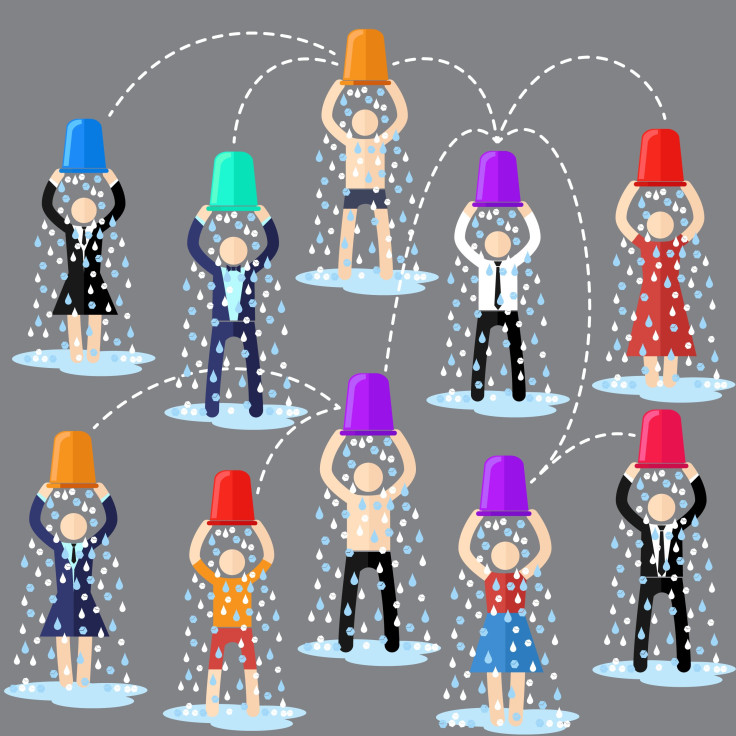
How has the Ice Bucket Challenge helped you specifically, as well as the programs you’re enrolled in?
The trial that I’m in is completely funded by the Ice Bucket Challenge. It wasn’t going to be possible without that money, or if it was, it was only going to be 50 people or so. I talked to [the ALS Therapy Development Institute] in April 2014 about [the trial]. They said it would be years. And then at the end of August, they called me and said, “Hey, we got the money, can you come up in October?” I can’t overstate how big of a game-changer the Ice Bucket Challenge really was, and how much it continues to change things. Even before that, you’d talk to people about ALS and people didn’t really know what it was. They thought it was MS. It was this abstract thing.
Now when you fundraise everybody knows what it is, so it’s a lot easier to get people involved and then, on top of that, there’s something to be said about the fact that it’s a part of history. People really do want to be a part of something that is actually going to do something. Everybody wants to be part of a cause. Certain people, especially our generation, want to see that it’s actually going to do something. It’s not like, “We’re going to throw money at it and 50 years down the line, something might happen.”
This is happening now, this is happening today. As we speak, because of the program that I’m in, we’ve already selected two compounds for human trial. If you think about that in the mouse model, that’s three to five years. They did it in six months.
What other involvement do you have with ALS/people suffering from ALS? Have you met others with ALS and their families? How has that impacted your fight?
It’s a close network. We’ve talked to people literally all over the world. It’s very helpful and very comforting to talk to other people who are experiencing the same thing, but I think it’s also really hard to hear new people diagnosed. A lot of people come to me, everybody is in a different place in their life when they get ALS. It’s really hard to talk to somebody that isn’t handling it well. You try to do everything you can to help them but it’s just, it is heartbreaking.
I met a guy who’s 24 years old and has ALS. And I can’t even wrap my head around how I would’ve felt at 24, being a single guy and off on my own; that’s tough. Then you talk to people that are grandparents and are progressing quickly … it’s challenging but at the same time we stick together and try to get each other through it. It’s kind of what we do.
What have you told your sons, JP, 4, and Kip, 2, about the disease and how it’s affected you and how it will affect you in the future?
They’re really too young to understand it. JP has a sense that I’m sick; he asks me what medicine I’m taking, he asks me how I’m feeling today. He’s very conscientious like that. Kip has absolutely no concept. His favorite thing to do is jump on me and wear me out. That’s fine, that makes me laugh. But they don’t really know. There’s no good way to tell a 4-year-old or 2-year-old what’s going on. I’ll tell them, “I’m tired today” or “I’m sorry, I can’t run with you,” or “I can’t play tag today,” and they get it. Kids are so resilient. My kids now, when they see a person in a wheelchair, it’s nothing abnormal for them; they don’t think anything of it.
How has your experience in the Navy helped you at all with handling ALS?
One of the things about flying and going to SERE (Survival, Evasion, Resistance, Escape) School is that you learn compartmentalization. You learn that one bad thing in your life isn’t the totality of your life. You learn how to say, “This is going on, but when I’m eating dinner, I’m eating dinner. When I’m with my kids, I’m with my kids. My whole life isn’t defined by the fact that I have ALS.” That helps a lot.
What is Band of Bellinas and how does it inspire you?
Band of Bellinas raises money for ALS TDI, which is the same organization that I’m in a trial with. We also do other things; we fundraise for research. In that regard, we’ve raised a good amount of money and I’m sure we’re putting a dent in everything, but for me personally, it’s like, how do you ever thank those people? It’s so moving. Every time we get together and I see these people wearing the T-shirt for my team and trying to help me, it’s a pretty major emotional boost.
At the end of the day, I think, “I don’t have anything to give these people, except the commitment that I’ll keep fighting.” And you hope that that’s good enough. I’m so grateful, so thankful for my family and friends that have participated in this thing. There are times when I get up where I feel like I’ve been run over by a truck and I just don’t want to get out of bed and I think, “I owe it to these people that have done all of this stuff for me, and I keep going.” That, I think, is so helpful. When I tell myself, “Stop being a bitch, get out of bed, do what you got to do, because they’re fighting for you.”
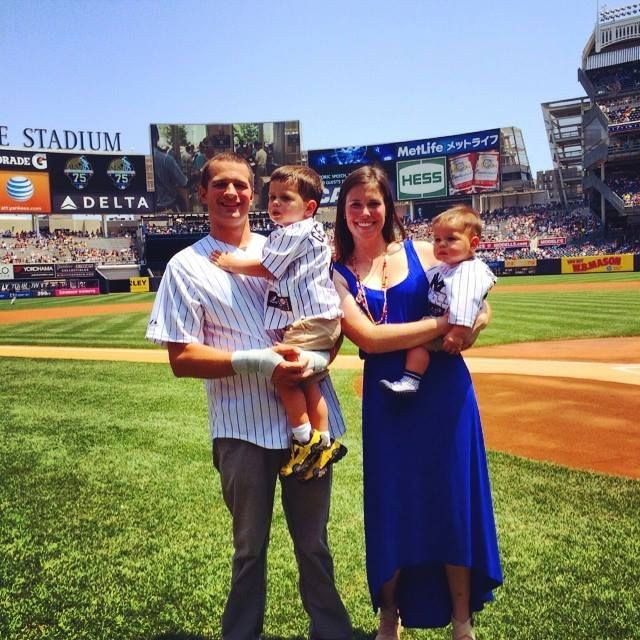
Is there anything else you’d like to add?
I will say this: If you look into it, there is a protein aggregation similarity between Alzheimer’s disease, Parkinson’s, and ALS, and other forms of dementia too, that there’s this similar pathology in all of them and it’s one of those things that if we can nip it in the bud right now and figure that thing out, we will save our country so much money. Alzheimer’s disease costs our country so much money and for veterans too, the [cost of] care at the VA for all of those diseases is so high. There’s got to be a way to solve that problem. The cost of the research and figuring it out and beating it has got to be less than the cost of care down the line. That’s my big point. That’s what I try to hit home all the time.
Obviously there’s a human aspect to the disease and that’s what most people care about, but the taxpayer portion is what people should be very concerned about.



























